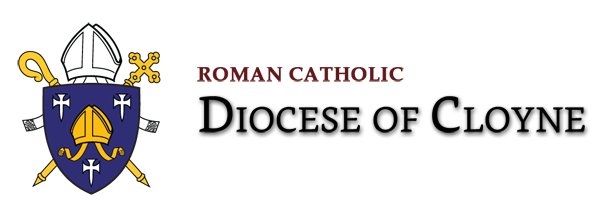Baptism of the Lord
St. Colman’s Cathedral, Cobh
Sunday, 7 January 2018
“Baptism barrier”?
My friends,
Is it not strange to hear baptism as the qualifying character of barrier? “Baptism barrier” is a word combination that has taken on the character of a weapon in the so-called battle for children’s enrolment in primary schools. The case being made is that children who are not baptised are being discriminated against when it comes to enrolment in schools under Catholic Patronage. In that sense baptism is a barrier rather than an easy access. One can appreciate the concerns of parents who do not wish to have their child educated in a school with a religious ethos. On the other hand, the rights of parents who wish to have their child educated in faith inspired values need to be respected and acknowledged.
Raising the question of baptism is fitting on this Sunday that marks the Baptism of the Lord. Jesus, as one who had not been the subject of sin did not need to be Baptised. He submitted himself to John’s Baptism as an expression of solidarity and example. The message of the Father’s affirmation and approval marked the beginning of His mission of freedom and joy to all people.
Baptism for the adult comes after a long period of preparation and prayer, accompanied by a sponsor or spiritual mentor, teacher coach and friend in faith. So, the decision to be baptised for these adults is not some trivial matter, rather a decision in faith to enter into life of commitment to the Lord to become an ever-faithful disciple. More and more people in Ireland are making this journey of faith known as R.C.I.A. (Rite of Christian Initiation of Adults)
For most people they have come to faith by way of infant baptism – christening – whereby the parents choose on behalf of the infant to immerse them in the life of faith, belief and Christian values from their very earliest days. It is often said it takes a village to raise a child. After baptism the family and community by their words and deeds serve as an example and teacher. That process is itself an education – a vision of life and how we flourish as individuals.
In the Catholic Christian vision and understanding, the primary school is an integral element of the process of character formation and inculcation of Christian values. As a Catholic community of faith, we ought not to be apologetic for our engagement in the educational endeavour rather we view it as a real enrichment to the wider society.
Efforts are being made and rightly to accommodate the diversity of views on the future structures of schools. However, it would be tragic if in doing so we end up with the lowest common denominator whereby any expression of religious values or symbols will be deemed to be offensive. People of religious faith ought not be dismissed as some kind of fools, unenlightened, narrowminded and intolerant. The rights of people of faith need to be respected. The fact that the State is the principal funder of education does not permit it to use peoples tax contributions to educate in a manner that violates their hard earned right to religious freedom.







